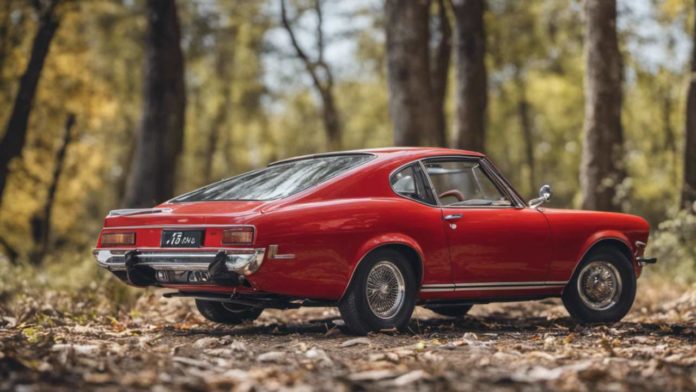Is 70mm or 80mm aperture better?
When it comes to choosing a telescope, one of the most important factors to consider is the aperture size. The aperture refers to the diameter of the telescope’s main optical component, which is either a lens or a mirror. A larger aperture allows more light to enter the telescope, resulting in brighter and clearer images. In this article, we will explore the differences between a 70mm and an 80mm aperture and determine which one is better for your astronomical needs.
70mm Aperture
A telescope with a 70mm aperture is considered to be on the smaller side, but it still offers decent performance for beginner and intermediate astronomers. The smaller aperture size means that the telescope is more compact and portable, making it easier to transport and set up. Additionally, telescopes with a 70mm aperture tend to be more affordable, making them a popular choice for those on a budget.
While a 70mm aperture can provide satisfactory views of the Moon, planets, and some brighter deep-sky objects, it may struggle to gather enough light for fainter objects such as distant galaxies and nebulae. The smaller aperture also limits the telescope’s ability to resolve fine details, resulting in less sharp and detailed images.
However, there are certain advantages to choosing a telescope with a 70mm aperture. Due to its smaller size, it requires less maintenance and is less prone to optical distortions caused by temperature changes. It also has a wider field of view, allowing you to observe larger celestial objects in their entirety.
Pros of 70mm Aperture:
- Compact and portable
- Affordable
- Wide field of view
Cons of 70mm Aperture:
- Limited light-gathering capability
- Lower resolution and image quality
80mm Aperture
An 80mm aperture telescope offers a significant improvement in performance compared to a 70mm aperture. With a larger aperture, it can gather more light, resulting in brighter and more detailed images. The increased light-gathering capability of an 80mm aperture allows for better views of fainter objects, making it a suitable choice for both visual observation and astrophotography.
Telescopes with an 80mm aperture are still relatively compact and portable, although they may be slightly larger and heavier than their 70mm counterparts. They are also more expensive, but the improved image quality and versatility make them a worthwhile investment for serious astronomers.
In terms of resolution, an 80mm aperture telescope can provide sharper and more detailed views of celestial objects compared to a 70mm aperture. This is particularly noticeable when observing planets and the Moon, as the larger aperture allows for better differentiation of surface features and finer details.
Pros of 80mm Aperture:
- Improved light-gathering capability
- Higher resolution and image quality
- Suitable for astrophotography
Cons of 80mm Aperture:
- Slightly larger and heavier
- More expensive
Conclusion
Both a 70mm and an 80mm aperture telescope have their own advantages and limitations. If you are a beginner or on a tight budget, a 70mm aperture telescope can still provide enjoyable views of celestial objects. However, if you are looking for better image quality, the ability to observe fainter objects, and the potential for astrophotography, an 80mm aperture telescope is the better choice.
Ultimately, the decision between a 70mm and an 80mm aperture telescope depends on your specific needs and preferences. Consider factors such as portability, budget, desired observing targets, and long-term goals in order to make an informed decision.
Editor’s Opinion
In my opinion, the 80mm aperture telescope is the superior choice due to its improved light-gathering capability and higher resolution. While it may be slightly larger and more expensive, the benefits it offers in terms of image quality and versatility make it a worthwhile investment for serious astronomers. Whether you are a beginner or an experienced observer, the 80mm aperture telescope will provide you with stunning views of the night sky.
Frequently Asked Questions (FAQs)
1. Can I see deep-sky objects with a 70mm aperture telescope?
While it is possible to observe some brighter deep-sky objects such as star clusters and certain nebulae with a 70mm aperture telescope, its limited light-gathering capability may make it challenging to see fainter objects like distant galaxies.
2. Is an 80mm aperture telescope suitable for astrophotography?
Yes, an 80mm aperture telescope is a popular choice for astrophotography. Its larger aperture allows for better light collection, resulting in brighter and more detailed images of celestial objects.
3. Are 70mm and 80mm aperture telescopes portable?
Both 70mm and 80mm aperture telescopes are relatively compact and portable, although the 80mm aperture telescope may be slightly larger and heavier. However, they are still considered to be portable compared to larger telescopes.
4. What is the price difference between a 70mm and an 80mm aperture telescope?
Generally, telescopes with an 80mm aperture tend to be more expensive than those with a 70mm aperture. The price difference can vary depending on the brand, model, and additional features of the telescope.
5. Can I observe planets with both 70mm and 80mm aperture telescopes?
Yes, both 70mm and 80mm aperture telescopes are capable of observing planets. However, the 80mm aperture telescope will provide better resolution and allow for more detailed views of planetary features.
Sources:
- Astronomy Magazine – www.astronomy.com
- Sky & Telescope – www.skyandtelescope.org
- Telescope.com – www.telescope.com
- Space.com – www.space.com
- Cloudy Nights Telescope Reviews – www.cloudynights.com


